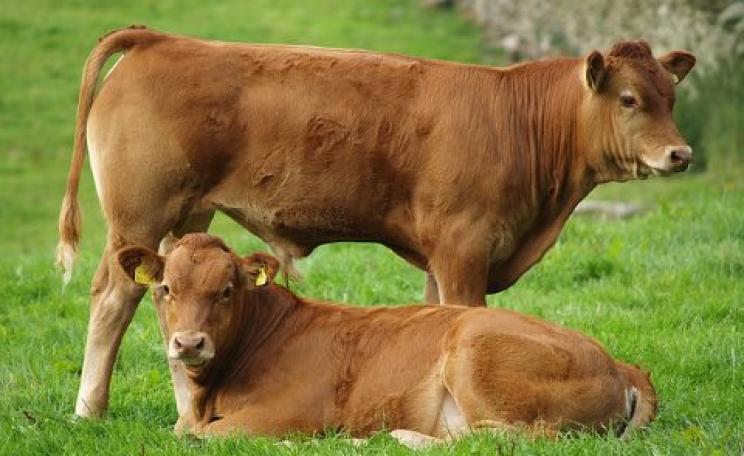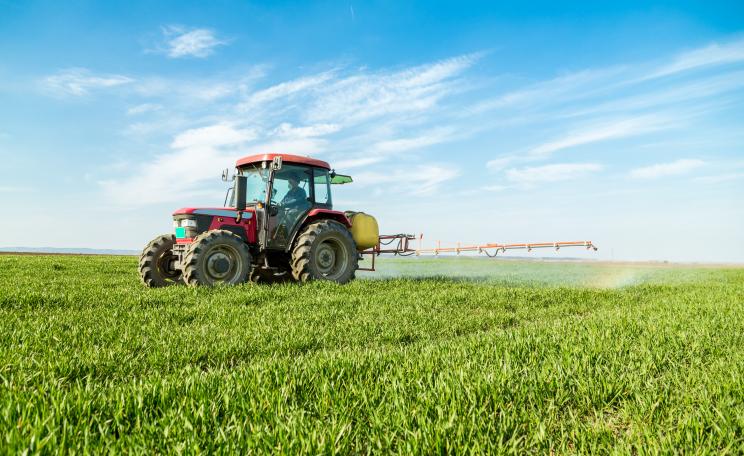Customers believe that that the more a dog suffers in its death, the better its meat. This is why so many dogs are sadistically made to experience extreme fear and suffering as they are slaughtered.
Activists and celebrities joined together in a large march and protest last Friday against the Korean summer season of dog eating called 'Boknal'.
I was delighted to join my fellow wildlife presenter Nigel Marven, along with Dominic Dyer, CEO of the Badger Trust, and Band Besureis, to stand in solidarity for dogs worldwide outside the doors of the Korean Embassy, a stone's throw from Buckingham Palace and the Queen's famous corgis.
Well over 100 protesters and activists lent their impassioned voices to this demo, which followed on from the Yulin demonstration outside the Chinese embassy two weeks before.
Bok-Nal, which literally translates as 'Dog Days', is a three-week Korean holiday marking the height of the summer growing season. It is traditionally the hottest time of the year and in a bid to beat the summer heat, many Koreans will consume 'traditional' soups or tonics made of dog meat.
The meat is believed to have magical restorative powers, increasing overall health and fitness, as well as the powers to 'cool the blood'. Of course no such magical health benefits have been proven to exist, and probably the only way the soups combat dehydration is because of their water content.
Torture and deprivation from the moment of birth
Yet dog meat consumption increases considerably during this period, focusing in on three days in particular. The event is hosted on the first day July 19th called Cho Bok translated as 'first summer' continuing through to Joong Bok, 'mid-summer', on the 29th of July and Mal Bok, 'end of summer', on August 8th, lasting around three and a half weeks.
South Korea has the world's 14th largest economy yet this is also a country where an estimated 2.5 million dogs and thousands of cats are slaughtered and eaten each year. Forced to endure deprivation and unimaginable torture from the moment they are born until the day they are slaughtered, dogs are imprisoned in cramped, filthy, raised, wire, cages all their lives with no protection from extreme weather.
They have no exercise, companionship or medical care, and they never feel the ground beneath their feet. Their eardrums are often burst to prevent them from barking. In broad daylight, often in front of other live dogs, they are electrocuted, hanged, beaten, have their throats slashed, boiled or burnt to death.
This is a profit-driven, tax free, unregulated industry whose customers believe that that the more a dog suffers in its death, the better its meat. This is why so many dogs are sadistically made to experience extreme fear and suffering prior to slaughter. Cats are frequently boiled alive to make health tonics, too.
Younger generation shuns a cruel, insanitary, repulsive 'tradition'
The demand is so high in South Korea that 20% of the dogs eaten are now imported from China. Unlike China, most of the dogs are farmed and these same dogs are pumped full of antibiotics and medicines - it is the only way to keep them alive and free from disease, because of the terrible conditions they live in.
Customers believe that that the more a dog suffers in its death, the better its meat. This is why so many dogs are sadistically made to experience extreme fear and suffering as they are slaughtered.
Some people believe a solution to the social, environmental, and health problems of the illegal dog meat industry is to legalise it. However, legalisation of dog eating will do nothing to stop the cruelty. If condoned by the government, it would only become more widespread and open. And it would still be practically impossible to police. Dog farmers will not want extra social responsibilities, rules and regulations, and costs. It will be cheaper for many to continue to farm illegally without restrictions.
Just this week, it was announced that South Korea's longest running dog meat restaurant of 33 years is finally closing its doors due to demand for dog meat being in decline.
"Most young people eat chicken soup on a dog day and even those who eat dog tend to refrain from talking about it openly", says Moon Jaesuk, a 32-year-old researcher. "Young South Koreans grow up watching TV shows about raising puppies and other pets, which sapped appetite for dog meat."
Many animal rescue charities are actively operating out in South Korean, The Humane Society International has rescued 495 dogs this year and closed at least 5 slaughterhouses. Other local famous rescuers, including a local lady called Nami Kim works hard on a daily basis trying to change beliefs and minds in her home country, as well as trying to save as many dogs that she is able.
UK Government Petition: 'Urge the South Korean Government to end the brutal dog meat trade'.
Anneka Svenska is a conservationist & broadcaster who specialises in films covering serious wildlife crime, wildlife & environmental conservation and education surrounding misunderstood apex predators.
To find out more about the Dog Meat Trade, charities and what you can do, please visit: dogsandcatsoffthemenu.com






